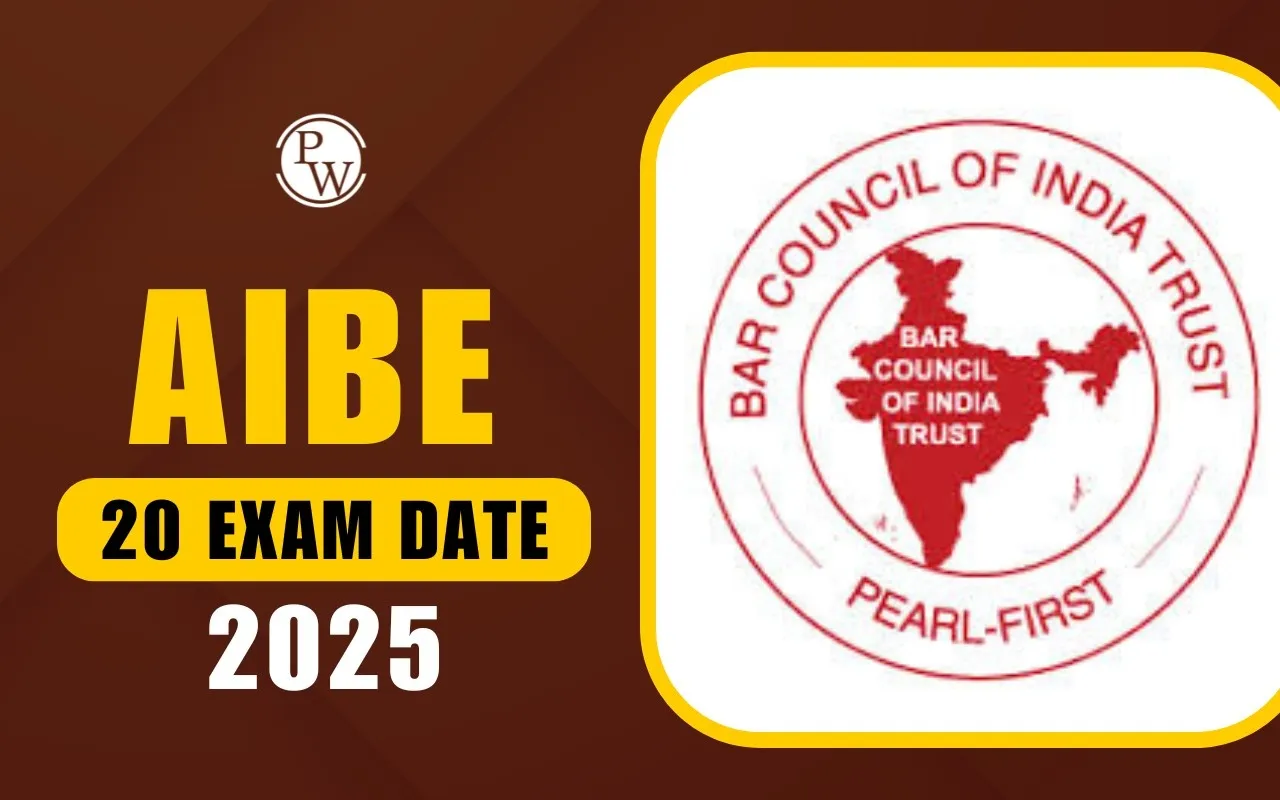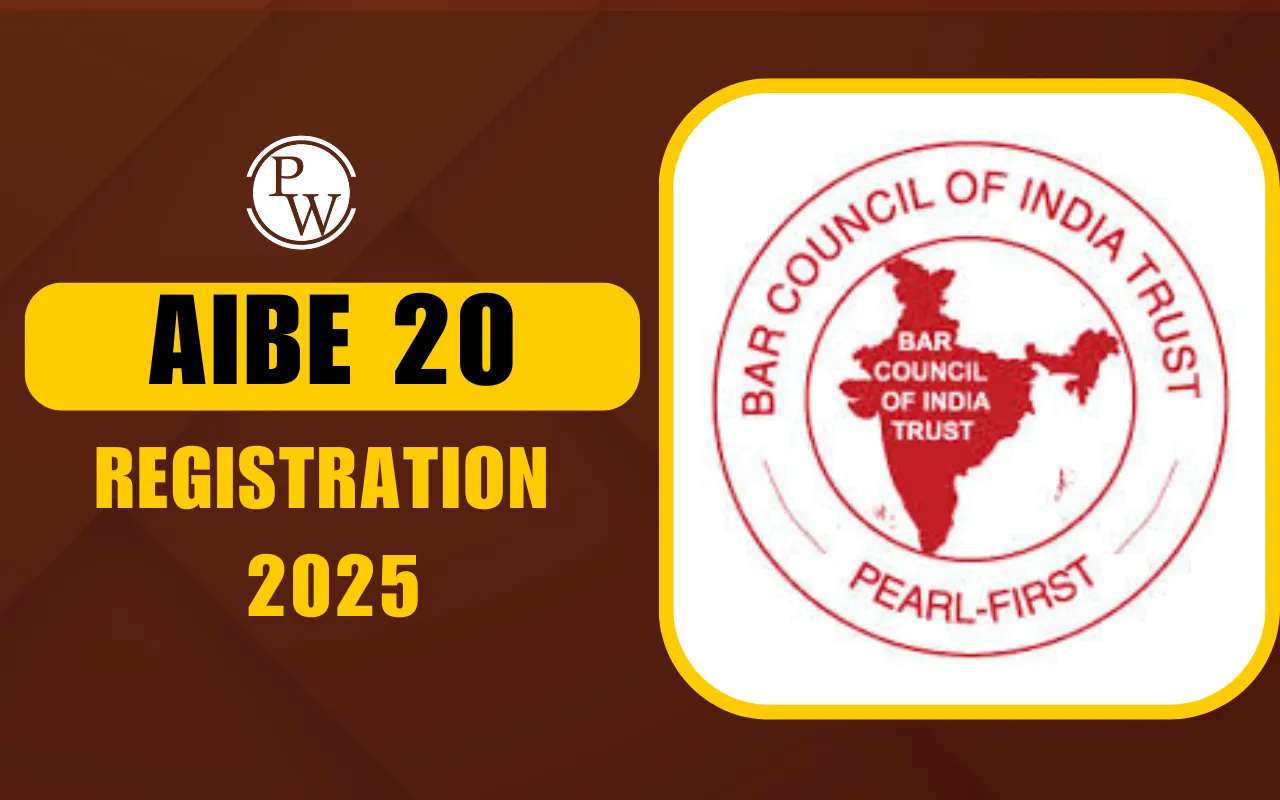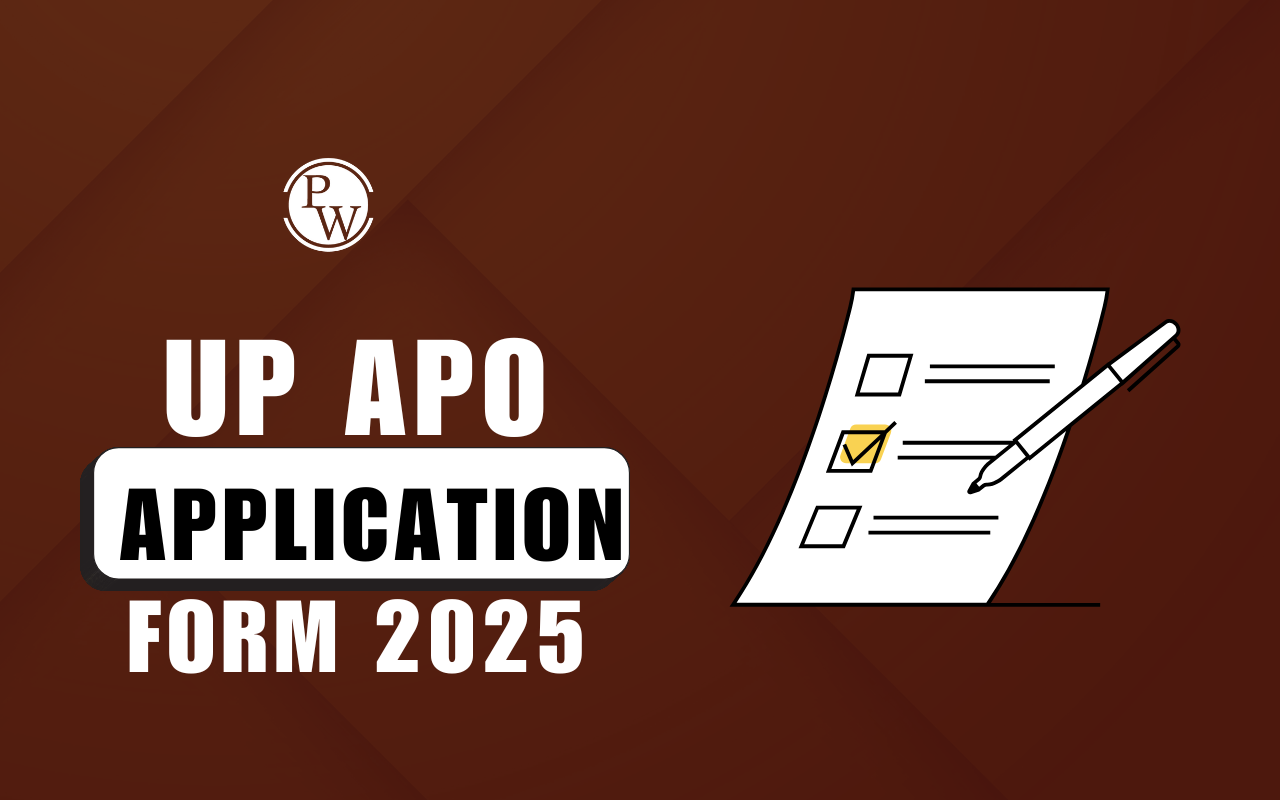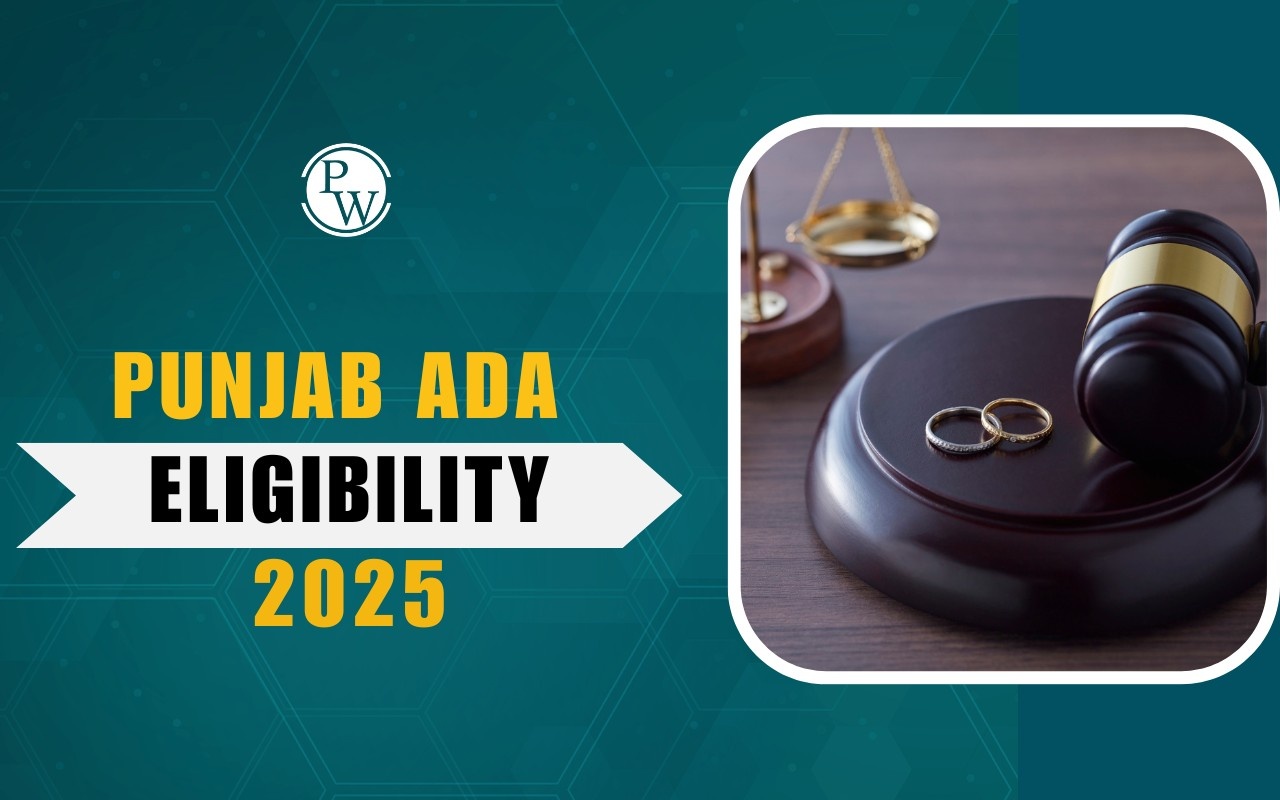

How to Become Civil Judge: A Civil Judge is a prestigious post in the judicial hierarchy. To become Civil Judge, candidates have to clear a series of exams of the respective state. Candidates should have an LLB degree from any recognized university and must be within the age bracket of 21 years to 35 years to apply for the post.
Qualifications to Become Civil Judge
Before applying for any judiciary exam , candidates must go through its eligibility criteria thoroughly. The eligibility criteria state the minimum qualifications a candidate must possess to be eligible for the exam. It includes age limit, educational qualification, nationality, language proficiency, etc. Some of the basic prerequisites that are essential for the judiciary exams are explained below.1. Bachelor's Degree in Law
Candidates must have an LLB degree from any recognized university. This degree is the testament to the candidate's knowledge in law and legal matters.2. Age Limit
The minimum and maximum age limit for any judiciary exam is 21 years and 35 years respectively. The age limit ensures that the candidate is apt for the role in the judicial hierarchy.3. Qualify Judicial Exams
To become a Civil Judge candidates have to clear a series of exams including prelims, mains, and interview rounds of the judicial exams. The exam assesses a candidate's knowledge in law and legal fields, proficiency in language, and application of laws and rules in real situations. Additionally, candidates must also have analytical, reasoning, and interpersonal skills required for the role.How to Become Civil Judge after the 12th?
To become Civil Judge after class 12th, candidates have to first get a bachelor's degree in law and then qualify for the judicial exams conducted by different states across the country. To enroll in law programs, candidates have to take law entrance exams like CLAT, LSAT, AILET, etc. The CLAT is a national-level entrance exam and is the most talked about exam among candidates. By clearing the CLAT exam, you get admitted to top NLUs. The law courses provided by the universities are as follows.| Courses | Course Details | Average Fees |
| 3-year or 5-year integrated BA LLB | Eligibility: Candidates should have passed 12th grade in relevant subjects with a minimum aggregate mark of 45%. Entrance Exams: LSAT Duration: 5 years | INR 30,000/- to INR 3,00,000/- per annum |
| LLB | Eligibility: Candidates should have passed 12th grade in relevant subjects with a minimum aggregate mark of 50%. Entrance Exams: CLAT, AILET, SET Duration: 3 years | INR 35,000 to INR 1,50,000 per annum |
How to Become a High Court Judge
How to Become Civil Judge in India after LLB?
The following criteria should be met to become Civil Judge in India after LLB.- Candidates must have an LLB degree from any recognized university to apply for the judicial exam. It is the minimum qualification required to become Civil Judge.
- It is important that candidates must have completed their bachelor's degree from a recognized university or board.
- Candidates can either choose a BA LLB, a 5-year integrated law degree course, or a 3-year LLB (Bachelor of Legislative Law) for their graduation.
- You can pursue LLB courses after graduating from any stream through a recognized university.
- Candidates must be aware of the age limit for the judicial exams. Candidates must be within the age bracket of 21 years to 35 years to apply for the Civil Judge post.
- Candidates must be citizens of India to apply for the exam.
How To Become a Judge in India After LLB
How to Become Civil Judge through the Judicial Services Exam?
To become a Civil Judge through the Judicial Services Exam, candidates have to meet the eligibility criteria of the respective exam. Candidates must have minimum qualifications to appear for the exam. The judicial service exam includes three stages in the selection process, namely prelims, mains, and interview rounds. For the final selection as a Civil Judge, candidates have to clear all three stages of the judiciary exam. While prelims is a qualifying exam, the marks of the mains exam and interview rounds are combined for the final selection. The prelims is an objective exam consisting of multiple-choice questions based on current affairs and law topics. The mains is a descriptive exam consisting of separate papers on law subjects. It also includes language-based papers. In the interview rounds, the candidates are evaluated on their personalities, communication skills, and knowledge of the law and legal concepts.State-Wise Exams to Become Civil Judge
The judiciary exams are conducted by many states for the post of Civil Judge. The state-wise exam list is given below.Rajasthan Judiciary Examination (RJS) 2025
| Particulars | Details |
| Conducting Authority | Rajasthan High Court, Jodhpur |
| Age Limit | 21-40 years, with 5-year relaxation for SC/ ST/ OBC/ Women candidates |
| Educational Qualification | LLB Degree from any recognized university |
| Application Mode | Online |
| Examination Mode | Offline |
| Official Website | hcraj.nic.in |
Uttar Pradesh Judiciary Examination (UP PCSJ) 2025
| Particulars | Details |
| Conducting Authority | Uttar Pradesh Public Service Commission |
| Age Limit | 22-35 years, with specified relaxations |
| Educational Qualification | Bachelor’s Degree in Law |
| Application Mode | Online |
| Examination Mode | Offline |
| Official Website | uppsc.up.nic.in |
Himachal Pradesh Judiciary Examination 2025
| Particulars | Details |
| Conducting Authority | Himachal Pradesh Public Service Commission |
| Age Limit | 22-35 years, with age relaxations |
| Educational Qualification | Bachelor’s Degree in Law |
| Application Mode | Online |
| Examination Mode | Offline |
| Official Website | hppsc.hp.gov.in/hppsc/ |
Himachal Pradesh Judiciary Exam
Uttarakhand Judiciary Examination 2025
| Particulars | Details |
| Conducting Authority | Uttarakhand Public Service Commission |
| Age Limit | 22-35 years, with specified relaxations |
| Educational Qualification | Bachelor’s Degree in Law |
| Application Mode | Online |
| Examination Mode | Offline |
| Official Website | highcourtofuttarakhand.gov.in/recruitment/archive |
Madhya Pradesh Judiciary Examination 2025
| Particulars | Details |
| Conducting Authority | Madhya Pradesh High Court |
| Age Limit | 21-35 years, with specified relaxations |
| Educational Qualifications | Bachelor’s Degree in Law |
| Application Mode | Online |
| Examination Mode | Offline |
| Official Website | mphc.gov.in |
Preparation Tips to Become Civil Judge for Aspirants
Some practical tips that will be helpful to aspirants in becoming a Civil Judge are as follows.- Read the Civil Jugde exam syllabus of the judicial exams thoroughly. Focus on important topics like Criminal Law, Civil Law, etc, and study them thoroughly.
- Learn the concepts and definitions of the bare acts.
- Understand the pattern of each judiciary exam and prepare accordingly.
- Solve previous year's papers to familiarize yourself with the question type, exam pattern, and difficulty level of the judicial exams.
- Attempt mock tests specific to the judiciary exam. Analyze your performance. Identify your mistakes and try to eliminate those in the exam.
Salary & Allowance after becoming Civil Judge
A Civil Judge of any state earns a decent salary. The average Civil Judge salary ranges between INR 39,000 to INR 60,000 per month and increases with job experience. The salary along with various allowances like DA, TA, insurance, medical insurance, house rent allowances, etc makes it more lucrative. The salary of a Civil Judge depends on various factors such as state, work experience, position, etc. The average salary of a Civil Judge across different states are given below.| State Name | Average Income |
| Haryana | INR 27,700 to INR 63,070 |
| Karnataka | INR 27,700 to INR 44,770 |
| Chhattisgarh | INR 27,700 to INR 44,700 |
| Madhya Pradesh | INR 27,700 to INR 63,700 |
| Delhi | INR 30,800 to INR 68,600 |
How to Become Civil Judge FAQs
How many attempts are there in the judiciary exam?
Candidates can make up to six attempts in the Judiciary Exam if they meet the eligibility criteria.
What is the lowest rank in the judiciary?
District Judges sitting in District Courts Magistrates of the Second Class and Civil Judges (Junior Division) are at the bottom of the judicial hierarchy in India.
What are the 4 tiers of the Judiciary?
The 4 tiers of the Judiciary according to the hierarchy are Subordinate Courts, District Courts, High Courts, and the Supreme Court of India.
Which is the highest civil court in a district?
The highest civil court in a district is the District Court. The District Judge has the highest judicial authority.
🔥 Trending Blogs
Talk to a counsellorHave doubts? Our support team will be happy to assist you!

Check out these Related Articles
Free Learning Resources
PW Books
Notes (Class 10-12)
PW Study Materials
Notes (Class 6-9)
Ncert Solutions
Govt Exams
Class 6th to 12th Online Courses
Govt Job Exams Courses
UPSC Coaching
Defence Exam Coaching
Gate Exam Coaching
Other Exams
Know about Physics Wallah
Physics Wallah is an Indian edtech platform that provides accessible & comprehensive learning experiences to students from Class 6th to postgraduate level. We also provide extensive NCERT solutions, sample paper, NEET, JEE Mains, BITSAT previous year papers & more such resources to students. Physics Wallah also caters to over 3.5 million registered students and over 78 lakh+ Youtube subscribers with 4.8 rating on its app.
We Stand Out because
We provide students with intensive courses with India’s qualified & experienced faculties & mentors. PW strives to make the learning experience comprehensive and accessible for students of all sections of society. We believe in empowering every single student who couldn't dream of a good career in engineering and medical field earlier.
Our Key Focus Areas
Physics Wallah's main focus is to make the learning experience as economical as possible for all students. With our affordable courses like Lakshya, Udaan and Arjuna and many others, we have been able to provide a platform for lakhs of aspirants. From providing Chemistry, Maths, Physics formula to giving e-books of eminent authors like RD Sharma, RS Aggarwal and Lakhmir Singh, PW focuses on every single student's need for preparation.
What Makes Us Different
Physics Wallah strives to develop a comprehensive pedagogical structure for students, where they get a state-of-the-art learning experience with study material and resources. Apart from catering students preparing for JEE Mains and NEET, PW also provides study material for each state board like Uttar Pradesh, Bihar, and others
Copyright © 2025 Physicswallah Limited All rights reserved.











